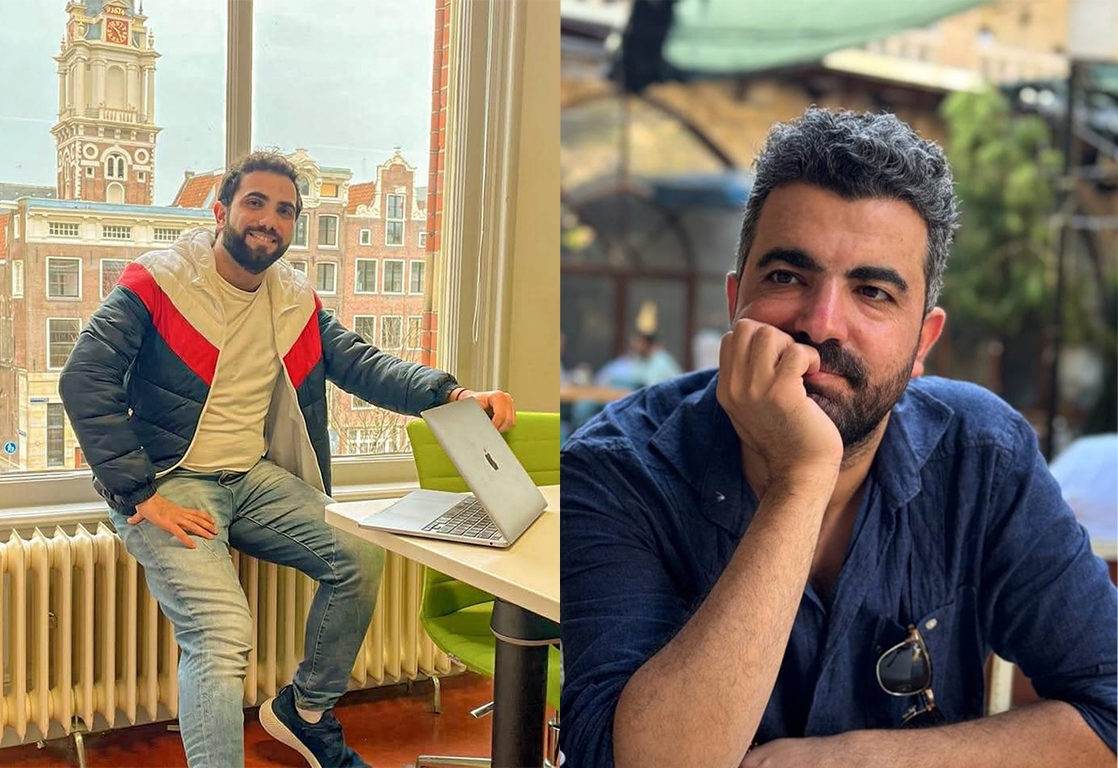
Voting the second time around: from new Dutch citizen to conscious voter
Share on social media:
Two years ago, Mustafa and Ashraf from Syria were eligible to vote in the Netherlands for the first time. It was a revelation. They voted mostly based on their feelings. Now, for the next election, their approach will be different. They want to vote strategically, now they know more about how the Netherlands works.
The right to vote: a new thought about citizenship
For Mustafa (39) and Ashraf (36) from Syria, who received their Dutch passports in 2022, voting for the first time was a special event. Voting is so different in the Netherlands, says Mustafa: "Here you see party programmes, political directions and the different interests." It was a new and strange experience for both of them. Mustafa: "In Syria, you know you have the right to vote, but you also know you are electing people who do not represent you." He says that is why he once even stayed at home, but then a family member took his voter card and voted for him, without asking.
The process in the voting booth was also different for Mustafa. Mustafa: "The voting booth seemed like a private room and the ballot paper had so many different parties... The red pencil was also very striking. Voting was like walking into a big city you don't know. I was grateful that the Netherlands gave me this right."
Ashraf powerfully summarises his first voting experience in 2023: "It was an amazing experience. For the first time, I felt that I could exercise my right to citizenship, something we were not allowed to do in Syria." For him, voting was more than a political act; it felt like the transition from being a refugee without rights to someone whose opinion is valued.
The first choice: regret and the search for impact on society
The choices made by the two men in 2023 were based more on emotion than strategy. Mustafa voted for Volt. He chose this party because he considered their vision for Europe important. "It's a young party that defends Europe," says Mustafa. He adds that the party is centrist, neither too left-wing nor too right-wing. He did consider casting a strategic vote for the left-wing coalition between GroenLinks and PvdA, but ultimately followed his instincts.
Ashraf voted for Denk in 2023: "But to be honest, I wasn't satisfied. It's a small party with barely two or three seats." He realised that voting for a small party has little political influence. He felt that a vote for a larger party could have more effect.
The result: shock and fear
The results of the election, in which the PVV became the largest party, caused disappointment and even anxiety for Mustafa and Ashraf. Mustafa saw the result as "a punishment of and protest against the government of Mark Rutte (VVD)." Although he did not find the PVV's popularity surprising, the huge gain was a shock. He did not expect the PVV to join the
The result caused fear among people with residency status in the Netherlands. Mustafa saw the fear among Syrians and other status holders: "I noticed that many of them became afraid to go to the municipality because there they could encounter an employee who had voted PVV, who would discriminate against them. I regretted my vote for Volt, I should have strategically voted for the left-wing collaboration of GreenLeft-PvdA."
Ashraf was disappointed too: "The results were frustrating, especially because the war in Gaza was ongoing." He had expected that the compassion in Dutch society for the victims in Gaza would have lead to a different outcome."
Voting the second time around: searching for strategy and balance
Now, as they prepare for the next election, Mustafa and Ashraf are both taking a different approach. They are now conscious voters who prioritise strategy over emotion.
Mustafa: "I follow the daily news and read the party manifestos, trying to get a clear picture of the parties that align most closely with my ideas." His main political themes for this election are immigration and asylum, the housing shortage, rising prices, and the conflict in Gaza. Mustafa: "This time, I'm voting strategically, because my preferences didn't have much impact last time."
Ashraf reads and compares the manifestos. He's looking for a balance between the parties' domestic and foreign policies. He has strong emotional ties to Denk, but recognises its limitations. "Denk's domestic policy is unfeasible. That's why I probably won't vote for them this time."
His focus now is on a party that offers solutions for the housing shortage, employment, and combating discrimination. At the same time, the party must "respect his background." He believes this balance is best achieved among the left-wing parties in the Netherlands. "I'll probably vote for the left-wing coalition GroenLinks-PvdA. We need to support a major party to counter the rise of the far right."
Voting: it's a duty
Both men agree that voting is a duty. Mustafa criticises the numbness of some citizens: "The most surprising thing I find is that a large proportion of Dutch people from a migration background don't vote." He doesn't understand why people say they're not interested in politics, because "politics cares about you, and politicians make decisions that affect your daily life."
Ashraf remains realistic about the influence of a single vote, but refuses to remain silent. "Voting is really useful, but I am a realist. Politics is bigger than one person alone."